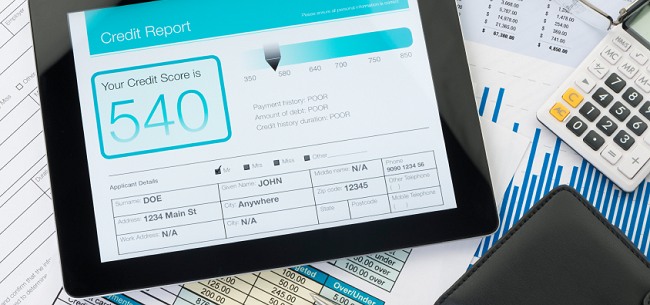A low credit score could mean you're turned down for a mortgage

A low credit score could thwart you in your hunt for a mortgage, but being turned down by one lender doesn't necessarily mean all others will follow.
Every adult in the UK with a credit history has a credit report and this is held by a number of credit reference agencies including Experian, Equifax and CCN.
Your credit report is essentially an overview of your borrowing behaviour to date and is a personal history of the credit you’ve had, from mobile phone accounts to personal loans and more. Lenders use your credit report in combination with their own criteria to establish whether you'll be able to make repayments on a mortgage through a process known as credit scoring.
Credit reference agencies like don't actually rate you as a borrower, but lenders interpret the factual information on your credit report to help them calculate a score when you apply. Most lenders will include your credit report in what they call a 'credit policy', which takes into account some of the details you would have provided on the application form such as your income and employment and even where you live.
If your overall score is too low they will reject your application. This can be confusing as each lender has differing views about what constitutes a low risk customer, the scores they each work out for you will vary. They do not publish their rules or scorecards, so you have no way of knowing what your score will be with any particular lender.
Lenders use the electoral roll to verify your name and address in order to combat identity fraud. A surprising number of first time buyers have their mortgage applications turned down because they are not on the electoral roll, so if you have not registered to vote, this should be a priority.
Past debts play a crucial role in the credit scoring process - court judgments (CCJs) for non-payment of debts, IVAs and bankruptcies and missed credit card or loan payments stay on your credit report for at least six years. Be aware that your application could be turned down if you have so much as one missed credit card payment, outstanding phone bill or CCJ against your name.
No credit history
Mortgage lenders tend to be just as suspicious of those who haven’t borrowed any money as they are of those who have borrowed and got into difficulty repaying. This is because statistically those who have little or no credit history are more likely to default on a mortgage or other form of credit.
Get hold of your credit report
Because all mortgage lenders will carry out a credit check to ensure that you are credit worthy before they will lend you money, it can make sense to get hold of your credit record in advance so you know exactly what is on it.
Can I get a mortgage with a low credit score?
Being turned down for a mortgage due to a low credit score can be disheartening. However, some specialist lenders offer a range of products for all types of customers and the lenders will accept default payments and CCJs, as well as one missed monthly mortgage payment.
A low credit score may not be insurmountable since a number of specialist lenders and regional building societies don’t use an automated credit scoring system but instead look at your credit history and come to a considered opinion.
A mortgage broker can be invaluable in placing your application with the lender most likely to accept it.
